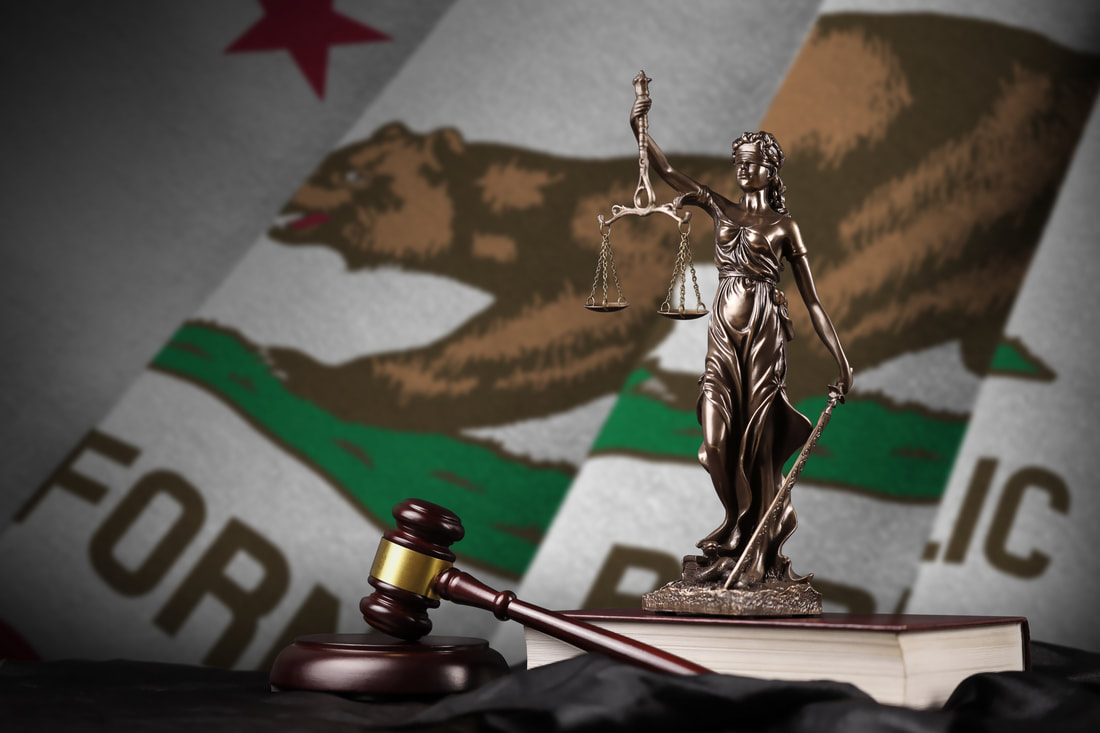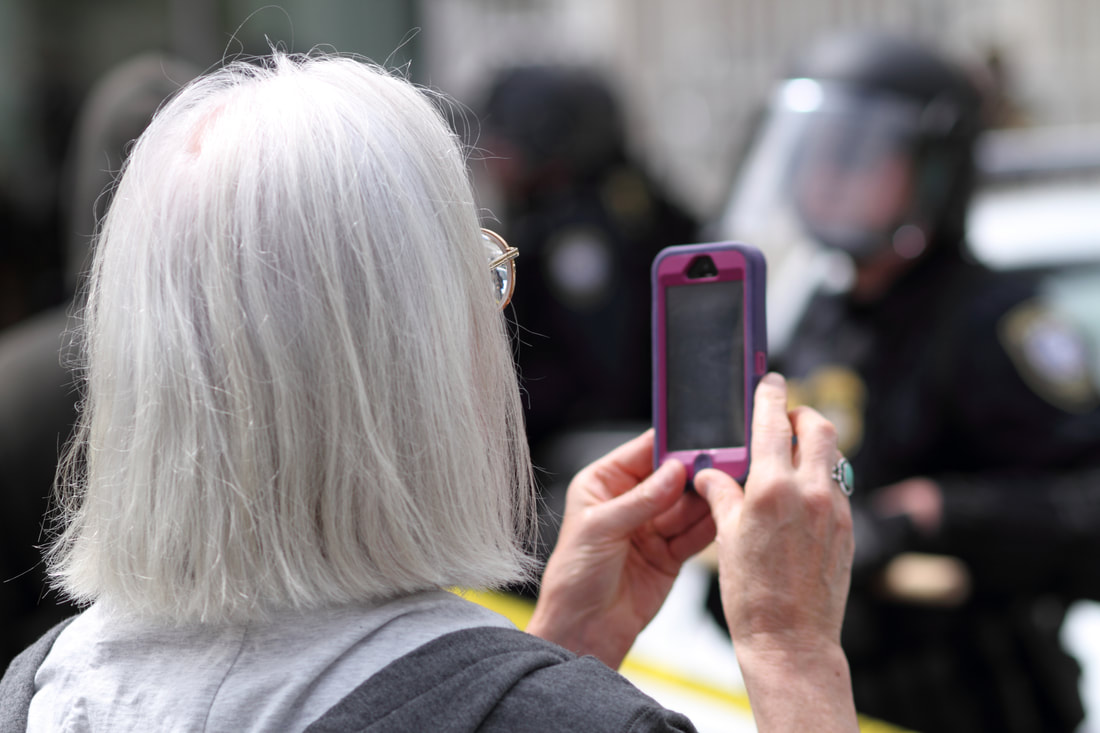|
The U.S. Supreme Court on Tuesday left the door open for companies to be sued in states where they have merely registered to do business, reviving a lawsuit that a Virginia man brought against Norfolk Southern in Pennsylvania despite his alleged injuries occurring in other states. A 5-4 majority held that the Supreme Court's 1917 ruling in Pennsylvania Fire Insurance Co. v. Gold Issue Mining & Milling Co. allowed states to have "registration by consent" laws, where an out-of-state company can be subjected to that state's jurisdiction regardless of how much business the company actually does there. "Norfolk Southern applied for a 'Certificate of Authority' from the Commonwealth which, once approved, conferred on Norfolk Southern both the benefits and burdens shared by domestic corporations, including amenability to suit in state court on any claim. For more than two decades, Norfolk Southern has agreed to be found in Pennsylvania and answer any suit there," Justice Neil Gorsuch wrote for the majority opinion. "To decide this case, the court need not speculate whether any other statutory scheme and set of facts would suffice to establish consent to suit. It is enough to acknowledge that the state law and facts before the court fall squarely within Pennsylvania Fire's rule." Justices Gorsuch, Ketanji Brown Jackson, Samuel A. Alito Jr., Clarence Thomas and Sonia Sotomayor said the ruling of the Supreme Court of Pennsylvania should be reversed and the case remanded to that court for further proceedings. Chief Justice John Roberts and Justices Amy Coney Barrett, Elena Kagan and Brett Kavanaugh dissented. Virginia resident Robert Mallory had sued his former employer, Norfolk Southern, over his alleged exposure to toxic chemicals on the job in Virginia and Ohio, but he wanted the case to be pursued in Pennsylvania on the theory that because the railroad had registered to do business in the Keystone State, that gave its courts jurisdiction over the dispute. The Supreme Court of Pennsylvania had thrown out the case late in 2021, striking down Pennsylvania's so-called long-arm statute, which gave its courts jurisdiction over any out-of-state corporation that had registered there, and finding such statutes violated a defendant's due process rights. The U.S. Supreme Court agreed to hear the case in April 2022. Mallory's counsel had argued in November that the Pennsylvania Fire precedent allowed such "consent by registration" statutes and was still in effect. Norfolk Southern, however, said such "consent" had been coerced, since nationwide companies had little choice but to register to do business in Pennsylvania if they wanted to do anything more than just pass through. The railroad argued that more recent Supreme Court decisions, like 1945's International Shoe Co. v. Washington , 2014's Daimler AG v. Bauman and 2011's Goodyear Dunlop Tires Operations SA v. Brown , had overridden and replaced the Pennsylvania Fire Insurance precedent. The U.S. Solicitor General's Office had joined the case on Norfolk Southern's side, arguing that allowing such broad jurisdiction over corporations from out-of-state could discourage trade if international corporations grew wary of being hauled into any state's courts. But the Supreme Court majority said the factual parallels to the Pennsylvania Fire case were unmistakable, where an insurance company headquartered in Pennsylvania was sued to cover a mine fire in Colorado, but the suit was brought in Missouri because the insurer had registered there. Pennsylvania's justices had been mistaken in not following the most applicable precedent, the majority said. They rejected the railroad's argument that the International Shoe decision — which dealt with specific jurisdiction tied to a company's activities in a state, and general jurisdiction in states that a company had its principal place of business — had "undermined" Pennsylvania Fire. "All International Shoe did was stake out an additional road to jurisdiction over out-of-state corporations," the majority opinion said. "Pennsylvania Fire held that an out-of-state corporation that has consented to in-state suits in order to do business in the forum is susceptible to suit there. International Shoe held that an out-of-state corporation that has not consented to in-state suits may also be susceptible to claims in the forum state based on 'the quality and nature of its activity' in the forum." Justice Gorsuch also rejected Norfolk Southern's argument that facing suits in Pennsylvania would not follow the "fair play and substantial justice" principle in International Shoe, embedding in the opinion some of Norfolk Southern's own marketing graphics showing its railroads criss-crossing the Keystone State, the tonnage of freight it moved, and its facilities there to demonstrate that the company was no stranger to Pennsylvania. Justice Jackson wrote in a concurring opinion that the court's 1986 opinion in Insurance Corp. of Ireland v. Compagnie des Bauxites de Guinee, which held that personal jurisdiction was a waivable right, also applied, and that Norfolk Southern could not claim it had been "compelled" into waiving its right to fight jurisdiction of a state where it did so much business. Justice Alito said he concurred with the final result, but was not convinced that the U.S. Constitution allowed states to impose consent-by-registration laws. The Supreme Court of Pennsylvania had not addressed Norfolk Southern's argument that the law violated the Constitution's dormant Commerce Clause, and the railroad could presumably press the court to make such a ruling on remand, Justice Alito wrote. "In my view, there is a good prospect that Pennsylvania's assertion of jurisdiction here — over an out-of-state company in a suit brought by an out-of-state plaintiff on claims wholly unrelated to Pennsylvania — violates the Commerce Clause," he wrote. "Aside from the operational burdens it places on out-of-state companies, Pennsylvania's scheme injects intolerable unpredictability into doing business across state borders. … I am hard-pressed to identify any legitimate local interest that is advanced by requiring an out-of-state company to defend a suit brought by an out-of-state plaintiff on claims wholly unconnected to the forum state." For the dissenting opinion, Justice Barrett said International Shoe had established that just doing business in a state was not enough to establish jurisdiction there, and she said that state statutes like Pennsylvania's "manufacture consent" to jurisdiction. She pointed to similarities between Mallory's case and BNSF v. Tyrrell, another suit where a railroad worker sued over cancer contracted on the job. But in the BNSF case, the U.S. Supreme Court had ruled against letting the case be brought in Montana. Pennsylvania's law was not clear enough in stating that an out-of-state corporation's registration included consent to its courts' jurisdiction, the dissent said, and letting just any state's long-arm statute convey consent could violate companies' due process rights and impinge on other states' rights to have cases affecting them brought on their home turf. "On the court's reasoning, corporations that choose to do business in the state impliedly consent to general jurisdiction," Justice Barrett wrote. "The result: A state could defeat the due process clause by adopting a law at odds with the due process clause." Counsel for Norfolk Southern declined to comment Tuesday. "I am so honored that Mr. Mallory and his superlative trial counsel trusted me to argue this important case," said Ashley Keller of Keller Postman, one of the attorneys representing Mallory. "And I am obviously grateful that the Supreme Court correctly interpreted our nation's Constitution to permit his suit to continue in the court where he filed it." Mallory is represented by Ashley Keller, Zina Bash, Warren Postman, Matthew A. Seligman and Noah Heinz of Keller Postman LLC; Daniel C. Levin and Frederick S. Longer of Levin Sedran & Berman; and Charles J. Cooper of Cooper & Kirk PLLC. Norfolk Southern is represented by Carter G. Phillips, Tobias S. Loss-Eaton, Daniel J. Hay and Chike B. Croslin of Sidley Austin LLP; Ralph G. Wellington and Bruce P. Merenstein of Schnader Harrison Segal & Lewis LLP; and Daniel B. Donahoe and Ira L. Podheiser of Burns White LLC. The government is represented by Curtis E. Gannon of the U.S. Solicitor General's Office. The case is Mallory v. Norfolk Southern Railway Co., case number 21-1168, in the Supreme Court of the United States.
1 Comment
A landmark decision by the California Supreme Court confirming that the California Medical Association can sue Aetna Health of California for alleged violations of the Unfair Competition Law paves the way for other nonprofits, unions and public interest groups to sue companies in the Golden State for engaging in allegedly illegal practices to stifle competition. In the unanimous decision issued Monday, the California Supreme Court held, for the first time, that a public interest advocacy organization can have standing to bring claims alleging unlawful, unfair or fraudulent business practices that threaten their organization's mission, if they have incurred costs responding to those perceived bad acts. When an organization has incurred such expenditures as the CMA has, it has standing to bring claims under the UCL because it "suffered injury in fact" and "lost money or property as a result of the unfair competition," wrote California Supreme Court Justice Kelli Evans in the 7-0 opinion. The decision brings back to life a case that began more than a decade ago. The CMA, a professional association that represents more than 37,000 California physicians, sued Aetna Health in 2012 claiming that the insurance company, via its "Network Intervention Policy," had been discouraging Aetna-insured patients from going out of network, even though their preferred provider organization, or PPO, plans included such benefits. According to the CMA, Aetna harassed physicians or terminated relationships with physicians for referring patients with PPO plans to out-of-network facilities. Such a "harmful and illegal" policy, the CMA said, "directly interfered with the doctor-patient relationship and physicians' independent medical judgment, in violation of numerous state laws." The CMA's general counsel estimated that the organization diverted hundreds of hours of staff time to responding to Aetna's alleged policy. Aetna, however, maintained that the policy was adopted, in part, to stop physicians from referring patients to facilities in which they had financial interests. Furthermore, Aetna argued that its policy applied to individual physicians — not to the CMA and that the CMA lacked standing to sue. A Los Angeles County trial court in 2019 agreed with Aetna that the CMA's diversion-of-resources argument wasn't enough to establish standing under the UCL and granted summary judgment to Aetna. The Court of Appeal affirmed that decision, holding that amendments to the UCL in 2004 had eliminated such representational standing. The CMA appealed to the California Supreme Court, which agreed in 2021 to review the case. The California attorney general as well as local prosecutors from San Francisco, Oakland, San Jose and San Diego waded into the fight, filing amicus briefs in support of the CMA. Likewise, the public interest nonprofit Consumer Watchdog filed an amicus brief supporting the CMA, as did labor unions, including the Writers Guild of America West, United Food and Commercial Workers Western States Council and United Farm Workers of America. Meanwhile, the U.S. Chamber of Commerce penned an amicus brief siding with Aetna, warning the court that a ruling in the CMA's favor could open the floodgates for frivolous lawsuits against companies. The California Association of Health Plans and the Association of California Life and Health Insurance Companies also submitted amicus briefs in support of Aetna. But on Monday, California's top court unanimously agreed that the trial court had erred in granting Aetna's bid for summary judgment and that the Court of Appeal had likewise erred in affirming the lower court ruling. "We hold that the UCL's standing requirements are satisfied when an organization, in furtherance of a bona fide, preexisting mission, incurs costs to respond to perceived unfair competition that threatens that mission, so long as those expenditures are independent of costs incurred in UCL litigation or preparations for such litigation," Justice Evans wrote. The high court also rejected concerns aired by Aetna and its amici. "We are not persuaded that recognizing a diversion-of-resources theory in this case will open the door to abuses of the sort suggested by Aetna and the amicus curiae," the court wrote in the opinion. The justices noted the question of UCL standing presented in this case "is one of first impression in this court" and that the diversion of salaried staff time and other office resources can constitute a loss of money or property for CMA. The California Medical Association lauded the decision in a statement Monday, calling it "a significant victory for providers, consumers and public interest advocates." "The outcome of this case highlights the importance of the UCL to combat unfair and deceptive business practices in the health insurance industry and beyond," the CMA said. "The ruling empowers membership organizations like CMA and other public interest advocates in California to defend their interests and the interests of their constituents against corporations engaging in unlawful conduct." The CMA's counsel, Stacey Leyton of Altshuler Berzon LLP, told Law360 in an email Tuesday, "We are very pleased that the California Supreme Court has preserved the rights of associations like the California Medical Association to sue under California's Unfair Competition Law when businesses are violating the law." "Our position that organizations have standing under the UCL when they are forced to divert resources to counter a business' unlawful activity was vindicated in every respect by the unanimous decision," Leyton said. Aetna's executive director of communications, Alex Kepnes, declined Law360's request for comment Tuesday. The California Medical Association is represented by Alan M. Mansfield of Whatley Kallas LLP and Stacey M. Leyton and Michael Rubin of Altshuler Berzon LLP. Aetna Health of California Inc. is represented by Matthew D. Umhofer and Elizabeth Anne Mitchell of Umhofer Mitchell & King LLP and Benjamin N. Hazelwood, Enu A Mainigi, Grant Geyerman and Craig Singer of Williams & Connolly LLP. The case is California Medical Association v. Aetna Health Of California Inc., case number S269212, in the Supreme Court Of California. JUDGE SHUTS DOWN KANSAS HIGHWAY PATROL "TWO STEP" MANUEVER TOPEKA — The Kansas Highway Patrol has been ordered to stop its infamous “two-step” technique by a federal judge, in what the American Civil Liberties Union of Kansas calls a “huge win” for all motorists using state highways. The U.S. district court ruled that the Patrol’s policies and practices violate the Fourth Amendment, releasing a Friday opinion that the Patrol “has waged war on motorists — especially out-of-state residents traveling between Colorado and Missouri on federal highway I-70 in Kansas.” The trial challenged the constitutionality of the Patrol’s policy of targeting out-of-staters and other “suspicious” people for vehicle searches by drug-sniffing dogs, along with the “Kansas two-step” maneuver. The “ two-step” is a technique taught to Kansas State Patrol personnel, in which they end a routine traffic stop and begin a separate effort to dig for information and gain entry to a vehicle to search for contraband. The opinion said the Patrol’s actions weren’t “a fair fight.” The Kansas State Patrol couldn’t be reached for comment on the situation. “The war is basically a question of numbers: Stop enough cars and you’re bound to discover drugs,” the opinion added. The court case came after Blain Shaw, an Oklahoma City resident, was pulled over near Hays, Kansas, while on his way to visit family and friends in Denver with his brother. He was stopped for speeding on Interstate 70 by Kansas Highway Patrol trooper Doug Schulte, who reported he clocked Shaw driving 91 mph in a 75 mph zone. Schulte ticketed Shaw and then walked away, before doubling back in a “trooper two-step” and returning to Shaw. The trooper then asked Shaw and his brother if they were hauling anything illegal, such as firearms or narcotics. Shaw answered in the negative but refused to grant permission to Schulte when he asked to search his van. The trooper then called in a K-9 unit to search Shaw’s vehicle. Though troopers didn’t find evidence of drugs, the Patrol required Shaw to report to a nearby law enforcement office so copies could be made of his medical records, Colorado identification card and medical marijuana registration. The incident snowballed into a trial challenging the Kansas Highway Patrol’s policy, with legal defense arguing Schulte violated the Fourth Amendment of the U.S. Constitution by searching Shaw’s vehicle. Shaw and other plaintiffs, represented by the American Civil Liberties Union of Kansas and Spencer Fane LLP, filed Shaw v. Jones in 2020 to challenge the Patrol’s practice of detaining motorists with out-of-state license plates and the “two-step” maneuver. The defendant in the case was Herman Jones, in his official capacity as Patrol superintendent. The lawsuit was consolidated with a separate suit brought by Mark Erich and Shawna Maloney, who had their family’s RV ransacked by KHP troopers in 2018 in another “two-step” incident. The ruling comes after two weeks of trials. The court found Jones responsible for the practice of unlawfully detaining motorists in Kansas without reasonable suspicion or consent, especially those out of state, and decreed that the Kansas Two-Step violates the Fourth Amendment, extending traffic stops “without reasonable suspicion and without the motorists’ knowing, intelligent and voluntary consent.” “This is a huge win — for our clients and for anyone else who travels on Kansas highways. We are gratified that the Court saw the ongoing harms of KHP’s unconstitutional practices and stepped in to stop the department’s widespread misconduct,” said Sharon Brett, legal director of the ACLU of Kansas. “It also demonstrates that courts will not tolerate the cowboy mentality of policing that subjects our citizens to conditions of humiliation, degradation, and, in some tragic cases, violence.” Brett added. A federal judge on Friday permanently banned Arizona from enforcing a new law restricting how closely people may film police, finding that the law violates a core First Amendment right to record law enforcement officers.
U.S. District Judge for the District of Arizona John J. Tuchi wrote that the law, which made it a misdemeanor offense to film a police officer within 8 feet after receiving a verbal warning, "prohibits or chills a substantial amount of First Amendment protected activity and is unnecessary to prevent interference with police officers given other Arizona laws in effect." The ruling is no surprise; Tuchi had already issued a temporary injunction last year suspending enforcement of the law in response to a lawsuit filed by the American Civil Liberties Union of Arizona and multiple media organizations. And supporters of the law could find no one to defend it on its merits in court—neither the Arizona Attorney General's Office, Maricopa County law enforcement, nor the state Legislature that passed the law. The law, passed last year, made it a misdemeanor offense to continue filming police activity from within 8 feet of an officer after receiving a verbal warning. There were exceptions for filming the police in a private residence, during a traffic stop, and if the person filming was the subject of the police encounter. But the law qualified those exceptions, saying they applied only if the person recording is "not interfering with lawful police actions" or "unless a law enforcement officer determines that the person is interfering in the law enforcement activity or that it is not safe to be in the area and orders the person to leave the area." The bill's sponsor, state Rep. John Kavanagh (R–Fountain Hills), wrote in a USA Today op-ed that he introduced it "because there are groups hostile to the police that follow them around to videotape police incidents, and they get dangerously close to potentially violent encounters." There were several similar bills restricting the ability to film the police introduced in statehouses in the South Carolina and Florida legislatures as backlash to the George Floyd protests of 2020. Civil liberties groups and media outlets opposed the legislation as soon as it was introduced, arguing it was overly broad, vague, and would chill the free speech rights of citizens and reporters. The right to film the police has been upheld by multiple federal appeals courts as a fundamental First Amendment activity. Last July, the U.S. Court of Appeals for the 10th Circuit ruled that a Colorado police officer did not have qualified immunity from a lawsuit alleging that he illegally tried to stop a man from filming a DUI traffic stop. The court ruled that a reasonable officer would have known that he or she was interfering with protected First Amendment activity. The Phoenix New Times reported that attorneys for the Arizona House and Senate warned lawmakers that there were potential constitutional issues with the law. However, the Republican-led Legislature passed it anyway, and then-Gov. Doug Ducey signed it into law. When the lawsuit hit the docket, though, no one wanted to defend the new law. Former Republican Arizona Attorney General Mark Brnovich declined to show up, as did the Maricopa County Attorney's Office and lawyers for the state Legislature. The ACLU of Arizona announced earlier this month that it had reached a settlement agreement with Democratic Arizona Attorney General Kris Mayes to ban enforcement of the law and end the lawsuit. "This settlement will ensure every Arizonan's fundamental rights are protected and people are not criminalized exercising their First Amendment rights," ACLU staff attorney K.M. Bell said in a press release. "Recording police officers is an important tool for holding law enforcement accountable to the public they are sworn to serve. We hope this settlement will deter the Arizona state legislature from continuing to pass flagrantly unconstitutional laws against the advice of their own attorneys." Hollywood is excited about the blockbuster $80.5 million Oppenheimer brought in during its opening weekend, as reported by Variety.
Based on the Pulitzer Prize-winning book American Prometheus, the movie is about the so-called “father of the atomic bomb.” Hollywood may be gleeful about the long lines to see Oppenheimer, but Navajo Nation President Buu Nygren still thinks Hollywood comes short on reporting on the devastation uranium mining and nuclear testing caused to the country’s largest Indian reservation. “The Navajo people cannot afford to be, yet again, erased from history,” Nygren writes in a TIME magazine op-ed on July 21, 2023. “Hollywood has a lot of work to do, and they can start by standing with the Navajo people and urging Congress to provide just compensation for victims of radiation exposure,” Nygren writes. Nygren, 36, is serving his first term as president of the Navajo Nation and is the youngest ever elected president of the tribal nation. Nygren says the movie was released five days after the 44th anniversary of the Church Rock uranium mill spill when 94 million gallons of radioactive waste poured into the Puerco River spanning the northern portions of New Mexico and Arizona where the Navajo Nation is located. “What came next—cancers, miscarriages, and mysterious illnesses—is a direct consequence of America’s race for nuclear hegemony. It’s an accomplishment built on top of the bodies of Navajo men, women, and children—the lived experience of nuclear weapons development in the United States. But, as usual, Hollywood chose to gloss over them.” Nygren writes. In 1990, Congress passed the Radiation Exposure Compensation Act (RECA), but the problems on the Navajo Nation still persist. “Despite the passage of the Radiation Exposure Compensation Act (RECA) in 1990, justice remains elusive for Navajo families who have suffered from the devastating and long-lasting health and environmental effects of the uranium mining industry on Navajo land,” Nygren writes. While the Oppenheimer movie deals with history, the Navajo Nation still deals with the long-term effects of the spill and uranium mining impacting the lives of its people. READ President Nygren’s op-ed. Rudy Giuliani is not contesting accusations that he made false statements about two former Fulton County election workers as he seeks to fend off a defamation lawsuit they brought against him, according to a court filing late Tuesday.
As an attorney for former President Donald Trump, Giuliani has repeatedly accused election workers Ruby Freeman and Shaye Moss of voting fraud. State and federal investigators quickly determined the allegations were false and said so. Freeman and Moss endured harassment and death threats because of the allegations and filed defamation lawsuit against Giuliani. In a document filed in that lawsuit on Tuesday, Giuliani said he is not contesting he made false statements about Freeman and Moss. “The defendant Giuliani, for the purposes of this litigation only, does not contest that, to the extent the statements were statements of fact and otherwise actionable, such actionable statements were false,” Giuliani said in a signed statement attached to the court filing. But he said the stipulation does not affect his argument that his statements “are constitutionally protected statements or opinion,” and he did not contest that they damaged the plaintiffs. Atlanta attorney Bruce Brown, who specializes in First Amendment and defamation law, said he’s never seen such a motion – in this case, called a “no lo contendre stipulation” – filed in a civil case. Such a motion, which means “I do not contest it,” is usually filed in a criminal case when someone is entering a plea, he said. In this case, “it’s different than admitting the allegation,” he added. “It would not be technically correct that he’s admitting he made those statements or that they were defamatory per se. He’s simply not contesting it.” Atlanta lawyer Peter Canfield, who also specializes in First Amendment law, agreed. ”He’s trying to basically thread the needle,” Canfield said. “He’s saying you can find against me on falsity, but he’s not saying I acted negligently or intentionally. He’s saying he won’t contest it. But the plaintiffs are asking for a lot more than that.” Ted Goodman, a political advisor to Giuliani, downplayed the significance of the court filing. “Mayor Rudy Giuliani did not acknowledge that the statements were false but did not contest it in order to move on to the portion of the case that will permit a motion to dismiss,” Goodman said in a statement to The Atlanta Journal-Constitution. “This is a legal issue, not a factual issue,” Goodman said. “Those out to smear the mayor are ignoring the fact that this stipulation is designed to get to the legal issues of the case.” The letter sent by the attorneys general says "race-based employment and contracting violates both state and federal law, and as the chief law enforcement officers of our respective states we intend to enforce the law vigorously." Thirteen state attorneys general sent a letter late last week to the nation’s largest employers warning them that they’ll “face serious legal consequences” if they use racial preferences in recruiting, hiring and contracting decisions.
The letter to Fortune 100 firms is the latest evidence that, while the U.S. Supreme Court’s decision last month striking down affirmative action in college admissions applies only to the education sector, it is emboldening critics of companies’ increasingly aggressive programs to bolster workplace diversity. “We urge you to immediately cease any unlawful race-based quotas or preferences your company has adopted for its employment and contracting practices,” they write.“ If you choose not to do so, know that you will be held accountable—sooner rather than later—for your decision to continue treating people differently because of the color of their skin,” the states’ top law enforcement officers added. The letter calls out tech companies such as Airbnb, Apple, Cisco, Facebook, Google, Intel, Lyft, Microsoft, Netflix, PayPal and Uber for using what the attorneys general characterize as quotas to increase minority representation in their workforces and in their supplier networks. “Such overt and pervasive racial discrimination in the employment and contracting practices of Fortune 100 companies compels us to remind you of the obvious: Racial discrimination is both immoral and illegal. Such race-based employment and contracting violates both state and federal law, and as the chief law enforcement officers of our respective states we intend to enforce the law vigorously,” the letter, which was first reported by the Wall Street Journal, says. Federal law bars employers from considering race and other protected characteristics in employment decisions. Corporations have claimed their diversity, equity and inclusion programs comply with the law, but many conservative Republicans contend they do not. The signatories, which include the attorneys general of Indiana, Iowa, Kentucky and South Carolina, said discriminatory DEI programs, even if they are well-intentioned, are “just as illegal as invidious discrimination.” Experts had predicted a Supreme Court ruling shooting down affirmative action at colleges would have a chilling effect on DEI programs. Many companies said after the ruling that their commitment to DEI is undiminished. The U.S. Supreme Court on Thursday struck down affirmative action admissions policies at Harvard University and the University of North Carolina at Chapel Hill, undoing decades of precedent in a ruling that will have wide-ranging implications for academia and a potentially broad swath of the workforce.The court's conservative majority largely telegraphed the ruling during five hours of oral arguments last October, during which they suggested they might steer schools toward certain "race-neutral" alternatives when compiling their admissions classes. Chief Justice John Roberts Jr. authored the majority opinion, which broke 6-3 along partisan lines. He wrote that the admissions policies used by Harvard and UNC run afoul of the Fourteenth Amendment's Equal Protection Clause. "[N]othing prohibits universities from considering an applicant's discussion of how race affected the applicant's life, so long as that discussion is concretely tied to a quality of character or unique ability that the particular applicant can contribute to the university," the chief justice wrote. "Many universities have for too long wrongly concluded that the touchstone of an individual's identity is not challenges bested, skills built, or lessons learned, but the color of their skin," Chief Justice Roberts wrote. "This nation's constitutional history does not tolerate that choice." The nation's oldest private and public universities were both sued in 2014 by the group Students for Fair Admissions. SFFA's leader, legal strategist Ed Blum, has steered several affirmative action suits to the high court and finally achieved his goal of overruling the court's 2003 holding in Grutter v. Bollinger . "The opinion issued today by the United States Supreme Court marks the beginning of the restoration of the colorblind legal covenant that binds together our multi-racial, multi-ethnic nation," Blum said in a statement. "Ending racial preferences in college admissions is an outcome that the vast majority of all races and ethnicities will celebrate. A university doesn't have real diversity when it simply assembles students who look different but come from similar backgrounds and act, talk, and think alike." UNC Chancellor Kevin Guskiewicz said in a statement of his own that the school "remains firmly committed to bringing together talented students with different perspectives and life experiences and continues to make an affordable, high-quality education accessible to the people of North Carolina and beyond." "While not the outcome we hoped for, we will carefully review the Supreme Court's decision and take any steps necessary to comply with the law," Guskiewicz said. Harvard President Lawrence Bacow said that the school will "certainly comply with the court's decision." "Harvard will continue to be a vibrant community whose members come from all walks of life, all over the world," Bacow said. "We write today to reaffirm the fundamental principle that deep and transformative teaching, learning, and research depend upon a community comprising people of many backgrounds, perspectives, and lived experiences. That principle is as true and important today as it was yesterday." The Grutter decision allowed for the use of race in the admissions process as long as it was used in a narrowly tailored way as a "plus factor," and the schools argued throughout the case that race was never held against prospective students during the admissions process. But Chief Justice Roberts said the school's argument that race "is never a negative factor in their admissions programs cannot withstand scrutiny." "College admissions are zero sum, and a benefit provided to some applicants but not to others necessarily advantages the former at the expense of the latter," Chief Justice Roberts wrote. Justice Sonia Sotomayor wrote in her dissent that the limited use of race has helped level the playing field for students of all backgrounds and improved diversity on college campuses, echoing arguments made by the schools. "Today, this court stands in the way and rolls back decades of precedent and momentous progress," Justice Sotomayor wrote. "This court overrules decades of precedent and imposes a superficial rule of race blindness on the nation. The devastating impact of this decision cannot be overstated. The majority's vision of race neutrality will entrench racial segregation in higher education because racial inequality will persist so long as it is ignored." A few words penned by former Justice Sandra Day O'Connor in the Grutter decision seemed to foretell Thursday's opinion. In upholding the use of affirmative action, Justice O'Connor added a self-imposed expiration date, writing, "We expect that 25 years from now, the use of racial preferences will no longer be necessary." "Twenty years have passed since Grutter, with no end to race-based college admissions in sight," Chief Justice Roberts wrote. "But the court has permitted race based college admissions only within the confines of narrow restrictions: Such admissions programs must comply with strict scrutiny, may never use race as a stereotype or negative, and must — at some point — end." In a concurring opinion, Justice Brett Kavanaugh dismissed the notion that former Justice O'Connor's deadline was merely aspirational. "Indeed, four of the separate opinions in Grutter discussed the majority opinion's 25-year limit, which belies any suggestion that the court's reference to it was insignificant or not carefully considered," Justice Kavanaugh wrote. The decision overturns a trio of lower court wins for the two schools. Harvard won a 2018 bench trial and the ruling was upheld by the First Circuit in 2020. UNC also won at the district court level, but the case bypassed the appellate circuit on its way to the top court. Both universities defended their admissions policies as being necessary to achieve diverse classes and the benefits that flow from that diversity. The Biden administration also backed the schools, arguing that universities still have a compelling interest in diverse classes, even two decades after Grutter. The Trump administration had previously backed SFFA, but the federal government reversed course when the administration changed. The majority opinion found that the benefits touted by the schools to justify their admissions programs, including better educating students through diversity and "training future leaders" are too vague to survive the constitutional challenges brought by SFFA. In a concurring opinion, Justice Clarence Thomas wrote that "both experience and logic have vindicated the Constitution's colorblind rule and confirmed that the universities' new narrative cannot stand." "Despite the court's hope in Grutter that universities would voluntarily end their race conscious programs and further the goal of racial equality, the opposite appears increasingly true," Justice Thomas wrote. "Harvard and UNC now forthrightly state that they racially discriminate when it comes to admitting students, arguing that such discrimination is consistent with this court's precedents. And they, along with today's dissenters, defend that discrimination as good." The Supreme Court's liberal wing agreed with the universities, again largely following what they had said during oral arguments. Justice Sotomayor cited the high court's landmark 1954 ruling in Brown v. Board of Education , which ended school segregation. "This limited use of race has helped equalize educational opportunities for all students of every race and background and has improved racial diversity on college campuses," Justice Sotomayor wrote. "Although progress has been slow and imperfect, race-conscious college admissions policies have advanced the Constitution's guarantee of equality and have promoted Brown's vision of a nation with more inclusive schools." In the underlying suits, SFFA accused Harvard of discriminating against Asian American applicants through a subjective "personal rating" in which SFFA claimed racial bias resulted in a lower score. The organization claimed UNC ran afoul of the 14th Amendment by giving preference to underrepresented minorities to the detriment of white and Asian American students. Prior to Grutter, the high court had initially blessed the use of race in the admissions process in its 1978 holding in Regents of the University of California v. Bakke . Bakke banned racial quotas but allowed race to be considered in the admissions process and, until Thursday, the court had tackled and largely affirmed that precedent, including in its 2016 holding in Fisher v. University of Texas , another case brought by Blum. The cases are Students for Fair Admissions v. President & Fellows of Harvard, case number 20-1199, and Students for Fair Admissions v. University of North Carolina et al., case number 21-707, in the Supreme Court of the United States. Two restaurants and a Monmouth County school district likely violated the state's law against discrimination on the basis of sexual orientation and gender identity and expression, the New Jersey Office of the Attorney General's Division on Civil Rights announced Friday.
The DCR issued findings of probable cause in three cases, two of which allege discrimination in the workplace. The third case alleges a Monmouth County restaurant violated state law when it refused service to a nonbinary patron for violating its dress code, which prohibited men from wearing sleeveless shirts. The patron had made their nonbinary status known to restaurant staff, according to the DCR. "In New Jersey, we are committed to protecting LGBTQIA+ individuals from discrimination, including discrimination at work or as a customer at a restaurant," Attorney General Matthew J. Platkin said in Friday's statement. "The findings we are announcing today reflect our continued commitment to ensuring that no one is mistreated because of their gender identity, gender expression or sexual orientation." In another Monmouth County case, the DCR said, a nonbinary teacher alleges that they were told not to speak about their gender identity to students, that they could not wear a pin that listed their preferred pronouns, and that the school unlawfully retaliated when it ended the teacher's employment almost two months before the teacher's scheduled date of resignation. The final case involves a gay man who alleges the manager at the restaurant where he worked asked if he was going to have a sex change operation and "cut it off" when the man asked for medical leave for scheduled surgery, according to the DCR. The employee requested and received a demotion so he could transfer to another restaurant location, and was fired once a management official at the new location learned he was scheduled for a medical leave of absence. "Too often, members of the LGBTQIA+ community in New Jersey face discrimination in their communities and their places of work. But our laws are clear: Discrimination on the basis of sexual orientation and gender identity or expression is illegal in New Jersey," DCR Director Sundeep Iyer said in a statement. "We remain committed to enforcing those protections against employers and businesses that discriminate against our LGBTQIA+ residents." According to the Attorney General's Office, after a finding of probable cause is issued, the parties and the DCR will engage in settlement negotiations. If a settlement can't be reached, the case will either be transferred to the New Jersey Office of Administrative Law for a hearing on the merits or to state court, where it could be tried by a jury. Following a final adjudication or settlement, the offending parties may be required to compensate the victim, as well as pay a penalty of up to $10,000 per violation for a first offense, and up to $50,000 for subsequent offenses. Training requirements, policy changes and compliance monitoring by DCR may also be required. The DCR said it does not disclose the names of the respondents involved in law against discrimination complaints. Pennsylvania's Department of Health overstepped its authority when it required that medical marijuana providers test their products at two separate laboratories, since the state's Medical Marijuana Act only requires testing by "one or more" labs, the Pennsylvania Commonwealth Court ruled Thursday. A 5-2 majority of the appellate court said the enabling law gave growers and processors a choice to pick more than one lab to test their products — or to stick with just one — so regulations the Department of Health enacted to mandate testing by two separate labs went beyond what the state's regulators were allowed to do. "The word 'or' is 'used as a function word to indicate an alternative.' … Thus, the plain meaning of section 704(a) of the act is that growers/processors may contract with only one lab if they so choose," wrote Judge Ann E. Covey for the majority opinion. "Notwithstanding, Section 1171a.29(c)(1)-(2) of the department's regulations mandates growers/processors to contract with at least two separate labs. Consequently, there is a conflict between the act and the regulation." The majority found that since it was in conflict with the law, the two-lab requirement was invalid, and the court granted a request from six grower/processors and one lab to throw the requirement out. According to the opinion, the state's Medical Marijuana Act had originally just required "an independent laboratory" do testing, but it was amended in June 2021 to say "one or more" labs should be involved. At the same time the amendment was being considered by the state legislature, the health department was weighing new regulations that would require two separate labs do the testing for each provider, reasoning that it would provide "checks and balances," prevent monopolies, and avoid mistakes or corruption, the opinion said. The regulation was supposed to take effect on March 4, 2023, but the medical marijuana companies filed their lawsuit that day, first getting a temporary halt to the rule, then striking an agreement with the health department not to enforce the requirement while the suit was pending. "The issue before this court is whether the department's regulation that mandates growers/processors to contract with one lab for testing the harvest batch or harvest lot, and another lab to test the medical marijuana before sale is in conflict with the act which mandates that growers/processors contract with one or more labs for testing," Judge Covey wrote for the majority opinion. The growers had argued that the regulation mandating two labs made the language in the law allowing one lab superfluous. The department had countered that the broad authority the law gave it to regulate medical cannabis products — and to ensure their safety for patients — let them go beyond the minimum testing requirement in the law. While the legislative amendment to the law was being considered, the Department of Health held public hearings, published a draft of the regulation and took comments, which lawmakers were presumably aware of when they passed the final language of the amendment, the department had argued. That language could have more clearly limited the number of labs or the department's authority, but it did not, the regulators said. Judge Covey, joined by judges Michael H. Wojcik, Christine Fizzano Cannon, Ellen Ceisler and Stacy Wallace for the en banc Commonwealth Court, agreed with the petitioners that the law was a limit, not a starting point. But President Judge Renee Cohn Jubelirer wrote a dissenting opinion, joined by Judge Patricia A. McCullough, that sided with the Department of Health on its authority under the law. "The plain language of Section 704(a) allows for both a singular laboratory and, in the alternative, multiple laboratories to be utilized in the testing process," the dissent said. "This language evinces that the General Assembly authorized the department to implement testing requirements through more than one lab as the department may deem appropriate in furtherance of the stated obligation and broad authority the act grants to the department to regulate and enforce the cultivating and processing of marijuana in the Commonwealth." Judge Cohn Jubelirer said she would have ruled in favor of the health department on whether it had the authority to require two labs, then would have gone on to consider other questions the rest of the court did not, such as whether the two-lab requirement ceded the health department's regulatory authority to the private labs, or whether it violated the Contract Clause of the Pennsylvania and U.S. Constitutions. Judith Cassel of Hawke McKeon & Sniscak, representing the grower/processors and the lab, said she and her clients were "thrilled" with the decision. "We think this is a win for the whole industry," she told Law360 Thursday. Representatives for the Department of Health did not immediately respond to requests for comment. The petitioners are represented by Micah R. Bucy, Dennis A. Whitaker, Judith D. Cassel and Aaron D. Rosengarten of Hawke McKeon & Sniscak LLP. The Pennsylvania Department of Health is represented by Kevin R. Bradford of the Pennsylvania Attorney General's Office. The case is Green Analytics North LLC et al. v. Pennsylvania Department of Health, case number 104 MD 2023, in the Commonwealth Court of Pennsylvania. |
HISTORY
April 2024
Categories |
© Walk 4 Change. All rights reserved.











 RSS Feed
RSS Feed